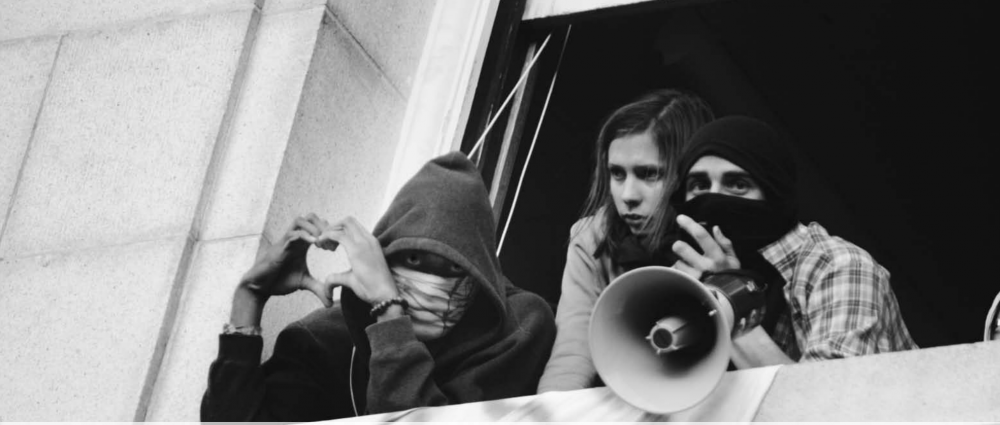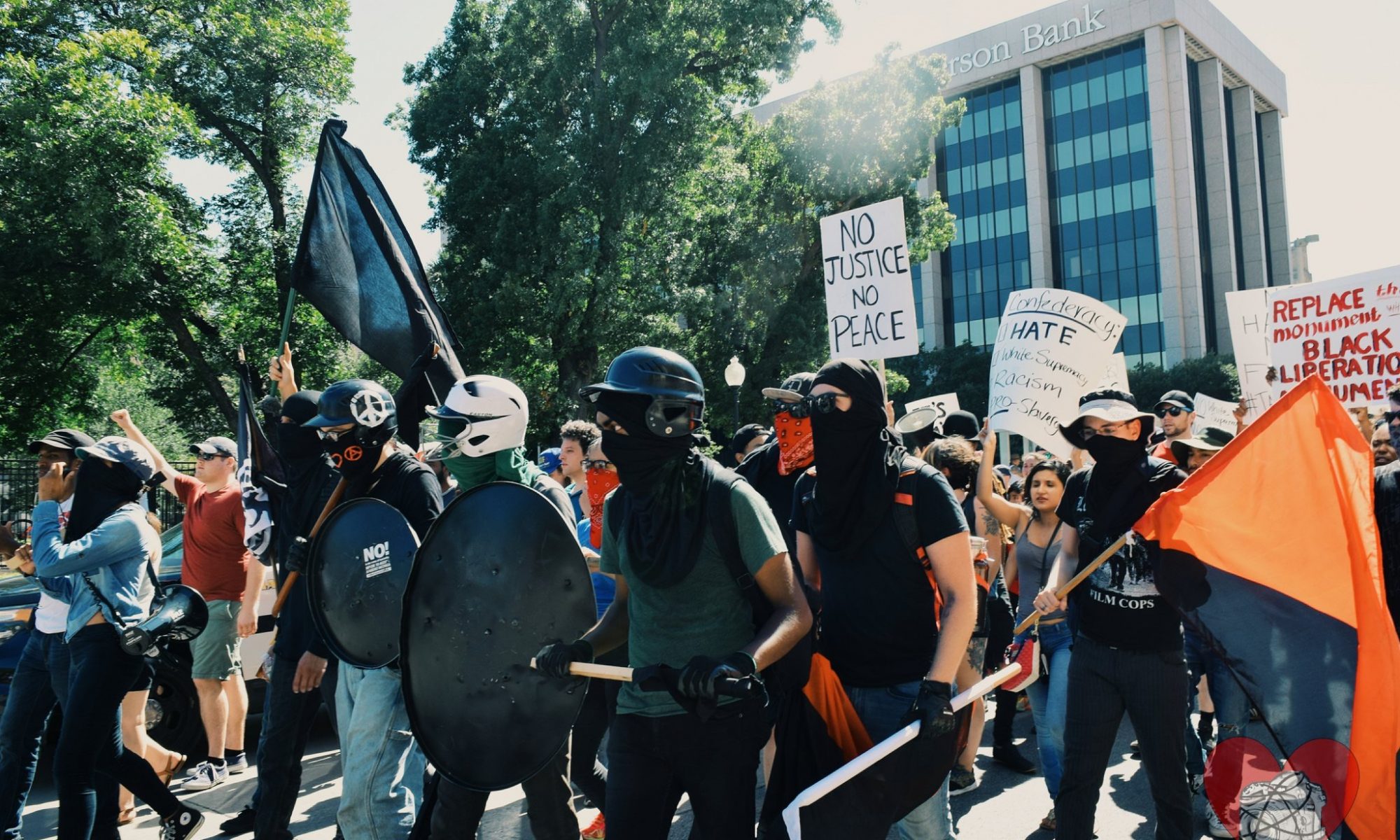Cutting Class
Counterinfo for the Ungovernable Generation
This interview is the latest in a series of conversations with the autonomous revolutionary groups that are participating in the Cutting Class counterinfo network. We hope that publishing these interviews will provide some clarity on where our crews are coming from and how that affects the way we have organized this project.
We also hope that these interview questions can provide a template for other autonomous groups to distill a collective understanding of their context and projects. If your crew finds these questions useful, write up a summary of your conversations and send them our way as a form of introduction. You can also check out what other crews have to say here. Cutting Class can be your platform, and we’d love to publish an interview with your crew and start collaborating—not just around CC but also with any other projects that these introductions might incite!
Today’s featured crew is Revolutionary Horizon from San Antonio, Texas.
Cutting Class: Introduce your crew: what projects are some of you working on, how long have you been around, where are you based, etc etc.
RH: We are Revolutionary Horizon (REVHO) in San Antonio, Texas. REVHO was formally created in August of last year as an effort to introduce a radical, anarchist lens to the campus environment and campus political discourse, a lens that was, and largely still is, rather lacking from both student organizations and department curriculums – the latter of these is hardly surprising, of course. The first few months of our existence were primarily spent trying to build relationships with other students and student groups, and to reach out, find, and bring together the fragments of whatever the “left” was on campus. Our group has grown steadily and significantly over the past several months, and while most of our members are students, we have several non-student members as well, a direct reflection of our desire to not only focus a radical lens on the struggles of the student body, but to connect and understand those struggles as they relate to or are separated from the struggles of the broader San Antonio community and beyond.
Our first real project is ongoing, and is centered on the disarming and ultimate abolition of the UTSA police department. This project began in November of last year in response to multiple appearances of flyers laden with white supremacist dog-whistles on campus and a Patriot Front banner drop that occurred in a busy intersection of the campus. More specifically, this project began as a response to the campus administration’s attempts to use these occurrences as the justification for an increased power and presence of the police on campus, primarily through an increase in the frequency of officer patrols, and the number of officers on patrols, and the installation of additional surveillance cameras on campus.
Our initial focus was centered on denouncing these attempts and calling them out for what they were – not a genuine effort to increase the safety and comfort of the university’s most marginalized groups, but an endangerment of those groups, and an active contribution to the increase of the power and forces of white supremacy on the UTSA campus – and on making it known that any attempts by the administration to follow through with these proposals would be resisted, disrupted, and sabotaged by any means necessary. Through this denouncement, we released a statement calling for the abolition of the UTSA police department, and attempted to ensure that this call was carried onward into any and all student-led discussions surrounding the issue, and that any calls for cooperation and collaboration with the police were adamantly denounced. We felt that it was necessary for the creation of a practical, visible, and effective alternative to the police on campus, particularly in regards to confronting fascists and white supremacists’ attempts to spread their propaganda, and as such, we performed several patrols throughout the campus and put up counter-propaganda to let them know we were watching.
Most of our efforts outside of this project have not been as explicitly defined or generally focused on, and are much more situational in nature. Our general goal has always been to build a solid foundational space for radicals on campus to meet, build connections and relationships, and ultimately direct the energy and momentum generated from these connections towards the dismantling of the exploitative, authoritarian nature of campus life itself, and to extend this dismantling to the broader community.
Additionally, of one our beloved comrades is currently working on a zine project titled “No Whites Allowed” that acts as a safe and empowering space for queer, non-white artists to elevate their voices and talents, as the intro states:
“So often are we told that our opinions are unimportant, told that our lives don’t matter, talked over, talked down on, pushed out of spaces, too often does our work go unrecognized. This space is a space that is completely ours. Free to express what is unsaid. Free to use our voices, knowing that we will be heard. This space is our own, to all the queer ass Black and Brown kids. This is for you.”
They’ve already hosted a release party at La Botanica, an awesome local, queer-owned and operated bar and restaurant, that featured queer, non-white artists showcasing their talents in a variety of mediums, as well as several amazing musicians and spoken word poets. It’s been really well received by the community, and even caught some flack in the media by the likes of Fox News, Turning Point USA, and Tomi Lahren, so you already know it’s something you want to check out.
https://www.instagram.com/nwazine/
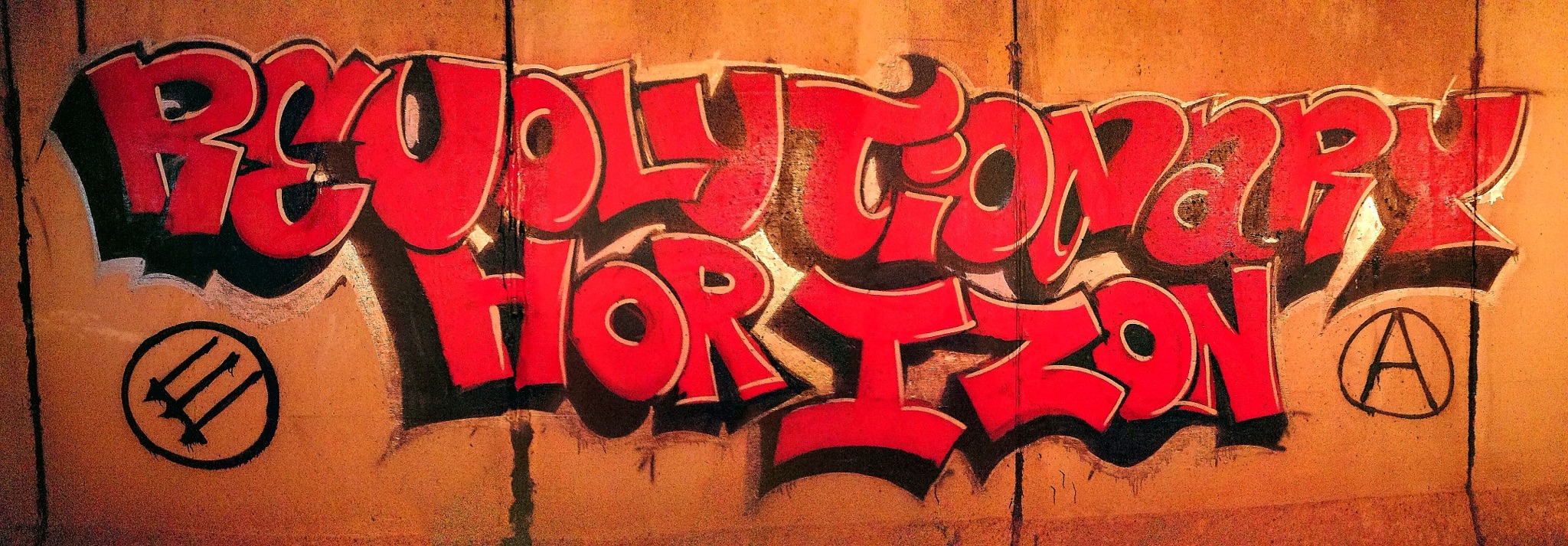
CC: What are some challenges you’ve faced (internal or external)?
RH: I think a lot of the answer to this question, at least in regards to our internal challenges, speaks to the next question and specifically to the complexities of what it means to be a student, and more broadly young millenials, in 2018. We’re overworked, overstressed, incredibly alienated from one another, and increasingly pressured into accepting the commercialized image of the student that focuses and directs all of her energy within the academic institution into marketing herself to future employers, and nothing else, and all with a return on our work and stress that is hardly sufficient to meet our basic needs. Jokes about the “ramen-noodle diet” are laughed at not because of their comedic value, but because of our mutual understanding of how absurd the conditions of our lives are, and how helpless we are often made to feel to do anything about it.
Of course, we do not believe that we are truly or indefinitely helpless, or else we wouldn’t be here and REVHO wouldn’t exist, but it can be an overwhelming and crippling feeling at times that, combined with our general lack of resources and the means to attain them, renders us immobile and unable to contribute time and energy towards the projects we cherish and value our time with the most. Speaking individually for a moment, all of my comrades in REVHO have beautiful, inspiring senses of creativity and imagination for how our world could be made better, and as an organization, there is no shortage of enthusiasm or lack of ideas for projects to develop, but there is a consistent and often overbearing struggle in trying to distribute our already tapped energy to effectively bring those ideas to life, and I think that is a pretty common internal reality for radical student orgs, broadly speaking.
As far as external challenges go, our biggest problem thus far has definitely been our constant need to combat the attempts of the administration, liberal student groups, and Student Government members to co-opt radical calls to action and to formalize watered-down, performative versions of those calls into the institutions of the university, and to suck the life out of any potential for a broad, decentralized, and student-based movement by encouraging students to act within those formal channels and those alone. Back in November of last year, we came face to face with this struggle as we joined in with a broad coalition of student orgs that formed to supposedly confront the increasingly present forces of white supremacy on campus. From the very first meeting, we were expending nearly all of our energy arguing with liberal student groups and SGA members, denouncing their calls to incorporate the campus police into the coalition and to place trust in the police to confront the forces of white supremacy on campus. Of course, the idea that a violent institution that was founded on and continues to uphold the very same forces of white supremacy could in any way combat those forces, or even have any incentive to, was laughable to us, but we spent the overwhelming majority of our time in coalition meeting denouncing similar notions and proposals, and clapping back, so to speak, as its liberal members applauded every toothless and performative gesture of the pseudo-progressive administration.
At some point we, along with several other radical-leaning orgs, realized how utterly pointless it was to work with student orgs so deeply entrenched in a liberal mode of thinking, and as we saw one such org steal our work and present a watered-down version of it as their own to gain entrance into a series of closed-door meetings with the administration, and one of the current candidates for President of the SGA co-opt our calls for non-white-student-led courses on racism and white supremacy and present yet another watered-down, toothless, police-and-administration led version of it as part of her campaign platform, we walked away from the coalition and formed one consisting solely of radical orgs. Our efforts and energy since then have been much more effectively distributed, and though this was definitely a frustrating experience, it really opened our eyes to the incompatibility of liberalism with truly liberatory and revolutionary movements.
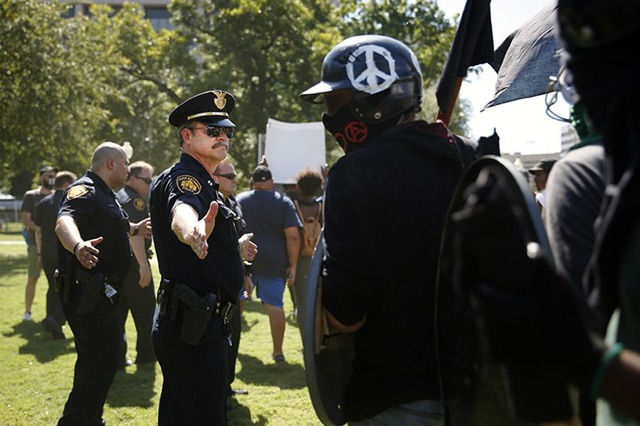
CC: What do you think some of the major limitations and untapped possibilities for radical campus organizing are today? How can we address those limits and realize those possibilities?
RH: Our answer to the last question ended up addressing a lot of our feelings about the major limits of campus organizing, so this answer will be much shorter. I think, though, that the limits of student organizing that are inherent to the nature of being a student in today’s world in a way speak to the possibilities for campus organizing, especially at UTSA. UTSA is a primarily non-white, working class, and commuter university, and at times it seems that there is a great deal of mutual recognition of the struggles that are inherent to our place within the exploitative and oppressive social, political, and economic institutions that dominate our lives, even if that recognition lacks a deeply radical or political analysis. More than anything, it’s a feeling that something isn’t right, that we should be in much better standing for the amount of stress and wear we put on our minds and bodies, and I think there is a lot of potential for channeling that feeling of discontent into a radical, dissenting, and revolutionary framework that extends into every corner of our lives, and that actively opposes all of the forces that dominate them.
Quite simply, I think that begins with conversations, and more specifically, with the constant presence of a radical, revolutionary perspective in campus conversations, both formal and informal, addressing the problems that we face as students, and as humans inhabiting a complex set of intersecting identities. We’ve tried to contribute to this notion by building connections with other student orgs and hosting or helping to facilitate radical discussions and screenings in their spaces, and by participating in and being an outspoken radical voice at campus events hosted by liberal and moderate student groups and coalitions. Of course, as mentioned before, this has backfired on us on numerous occasions, but we’ve managed to make our presence on campus fairly known, and I think there is a lot of potential in the months to follow for a radical campus moment to come to the front and center of campus political discourse. Of course, there is much else that can be done to address this aim, and we’ve considered many potential projects that will be mentioned in the following questions.
CC: How does your project connect with/support radical movements in your city and beyond? Are there good relationships worth mentioning? Bad ones?
RH: REVHO comrades come from a lot of different places and community organizations and projects, and that has really gone a long way in connecting us to radical spaces and conversations popping up throughout San Antonio and beyond. When we started REVHO, we had immediate connections in San Antonio through our involvement and affiliations with comrades in orgs like Food Not Bombs, Black Rose San Antonio, Domesticas Unidas, the now defunct C.A.S.A. – Communists and Anarchists of San Antonio, and others, and we’ve worked to maintain and expand our relationships with those comrades primarily by supporting their own efforts in any way we can. Outside of San Antonio, we’ve been connected to and working with radical comrades in Austin since the beginning as well. We’ve traveled to Austin on many occasions to support folks like the Autonomous Student Network, Revolutionary Student Front, and the radical bookstore, Monkeywrench Books, and RSF, and especially ASN, has traveled down here on multiple occasions to help us in our struggles. We think these multi-city connections, and the linking of our respective struggles, are incredibly important for the growth of any radical moment, and we’re really excited to build further on our relationships with these orgs in the future.
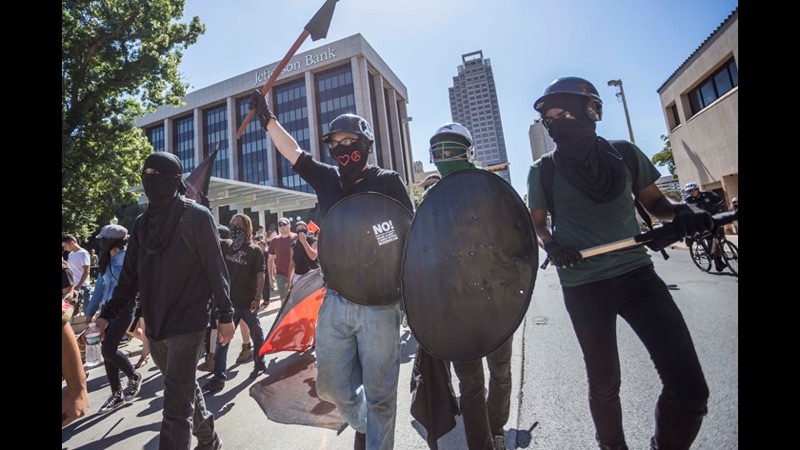
CC: What are some short and long-term objectives your crew has been working towards?
RH: We have some pretty ambitious goals for REVHO for this year, and I think we’re really in the process of shifting a lot of our focus not only to the campus, but to the broader community as well, as we are seeing the need increasingly arise. In no specific order, some of our tentative, and some discussed but not yet finalized, goals are as follows:
-
- Starting a campus-wide podcast, likely as a part of a future Cutting Class project, that addresses campus struggles and ties them into struggles more broadly that are either currently taking place or have taken place in the past.
- Beginning bi-monthly donation drives that sponsor local community organizations or projects in need of financial or material support.
- Constructing and facilitating regular radical firearm safety and education courses that focus not only on guns themselves but on framing gun use and ownership within a context that doesn’t romanticize or masculinize guns, and that places the safety, comfort, and most importantly, the voices, of the most marginalized and oppressed comrades front and center.
- We’ve already begun this to some extent, but we plan to begin doing regular copwatch events in working class and non-white neighborhoods that directly incorporate the residents of those neighborhoods. Through that effort, we hope begin a conversation around police violence and eventually build a strong, decentralized, anti-police connection between the residents of various neighborhoods all throughout San Antonio.
- Perhaps our most pressing goal is to construct and implement a mass rapid response network for monitoring, responding to, and ultimately resisting, I.C.E. raids in San Antonio, primarily through the creation of a secure, decentralized automated mass-text system that sends out text alerts to undocumented families, and allows for community members themselves to communicate through the text system as well whenever I.C.E. is spotted in their neighborhoods. With the recent kidnapping of over 40 undocumented folks in San Antonio, which was a part of a larger state-wide raid that resulted in the kidnapping of nearly 150 folks, this aim is more dire than ever. Like our copwatching goals, we hope to contribute to the building of a broad inter-community sentiment that is opposed to and that directly confronts the presence of I.C.E. in our communities. Through these efforts, we hope to grow this project into a broad, city-wide call for the complete and total expulsion of pigs and I.C.E. that follows our call for the abolition of the campus police department.
CC: What is your relationship to the rest of the campus left?
RH: When Revolutionary Horizon was organized, the homies thought it was important to include left-unity in our points of unity. The reason for this was because we believed that the total exclusion of comrades of other leftist tendencies in our spaces over theoretical differences is ultimately counterproductive. We know plenty of badass leftists on our campus and we frequently work in solidarity with them. However, we also know a lot of people who claim leftism on our campus but either commodify struggle for their resumes, like pigs for some reason, or have some other ridiculous liberal tendencies that we of course do not fuck with.
Like Autonomous Student Network, we also were involved in a coalition of students last year. While this coalition did dissolve due to conflicts mainly based on whether or not we should have allowed pigs into our organizing spaces or not, we did gain a lot of valuable connections with various leftists on and around our campus when we split off into a purely anti-pig collective.
CC: How can folks support your work?
RH: People can support us by following us on various social media accounts (we have Facebook, Twitter, Instagram, WordPress). We do not have any formal way of accepting donations at the moment, but if you follow us on social media we’ll promise to let you know when and if we ever do.
https://www.facebook.com/REVHOSATX/
https://twitter.com/revhosatx
https://revolutionaryhorizon.wordpress.com
https://www.instagram.com/revhosatx/
